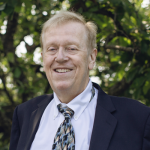Estefanía Campos | 26 de julio de 2019 | Vistas: 192
John Tooby in this lecture talks about how sciences are unifying, especially psychology and economics. He describes the concept of entropy - the second law of thermodynamics - and the few processes that can push things uphill out of random chaos into useful order and functional organization:
He argues that life forms embody functional organizations that leads them to make choices to have the best outcomes, however there is a problem: we are radically ignorant and our perception is an external hallucination. Tooby questions how are we going to run the economy due to this reality and then talks about profit - seeking, something usually perceived as a bad thing but that is really not, it is a matter of social negotiation.
Each individual is inclined toward making the best choices out of those the individual knows about and correctly understands”. - John Tooby
Afterwards John talks about Adam Smith’s system of “natural liberty” and explains an analogy of The Wizard of Earthsea with private property, which is just a word to describe something that you have the right to control or dispose of and the better you know it, the better you can control and decide over it.
Leda Cosmides also shares her ideas on the topic and argues that evolved institutions shape cultural transmission about economics and public policy. Also that to change minds we need to understand the design of the mind.
A very common view is that instincts are the opposite of reasoning, but they are not; a lot of people think that evolution erased all of our instincts and replace them with reasoning”. - Leda Cosmides
She goes into what are reasoning instincts and gives an example of the Charlie task (Baron-Cohen, 1995). Adam Smith wondered if the human “propensity to truck, barter, and exchange one thing for another is one of those original principles of human nature or the necessary consequence of the faculties of reason and speech”. The answer is human nature, says Leda. Later talks about reasoning instincts, particularly in social exchange
The human mind contains an evolved program that is functionally specialized for reasoning about social exchange, which includes a subroutine for detecting cheaters”. - Leda Cosmides
Leda finally talks about 3 evolved systems that regulate cooperation, each of them is activated by different conditions, generates different intuitions and these institutions shape our thought. Karl Marx’s view of hunter-gatherer labor and sharing rules theory is also discussed.
These activated programs governing cooperation, can quickly change political attitudes; Leda shares a study that compares Denmark and USA citizens opposition to social welfare and reflects that to convince people about a policy, yo need to understand their evolved intuitions and frame the argument accordingly.
"So promote liberty please!" Leda concludes, but with the use of our knowledge of human nature.


Honorary doctorate in social sciences


Honorary doctorate in social sciences
Nuestra misión es la enseñanza y difusión de los principios éticos, jurídicos y económicos de una sociedad de personas libres y responsables.
Universidad Francisco Marroquín